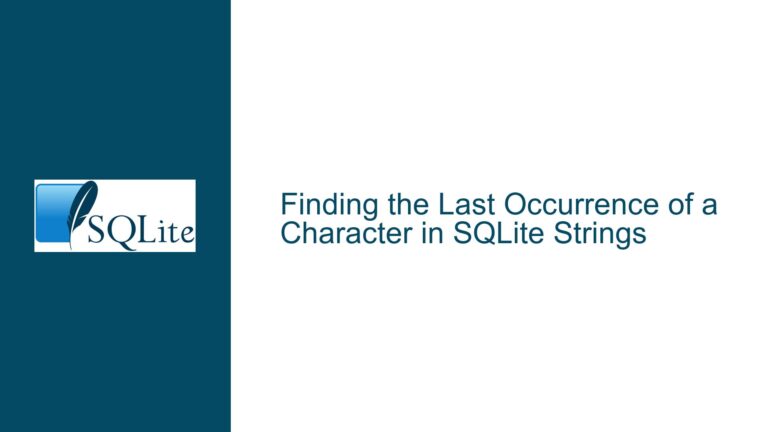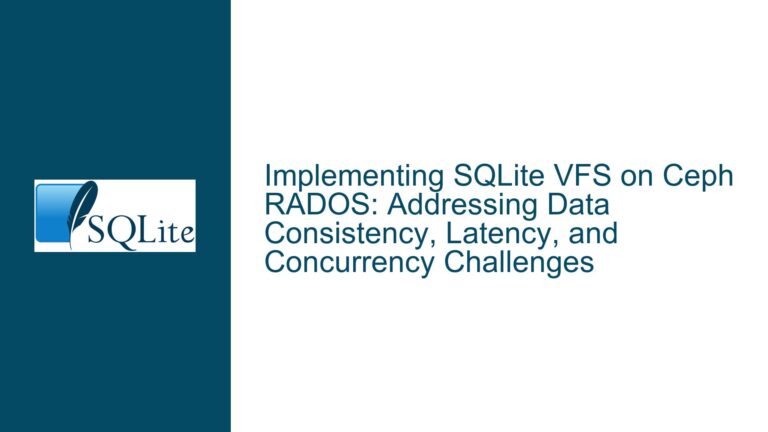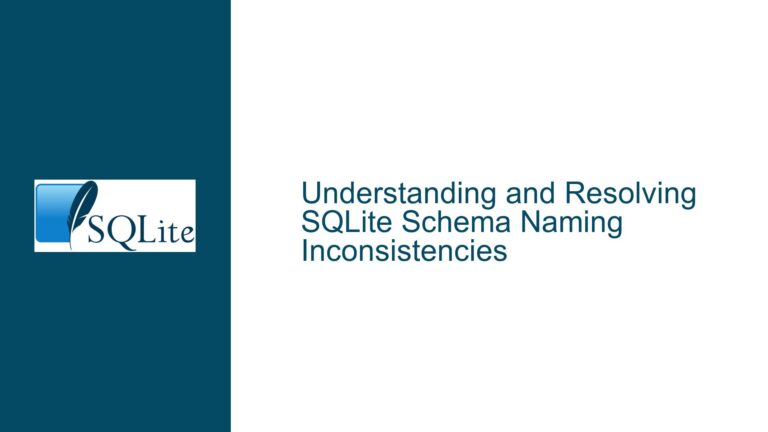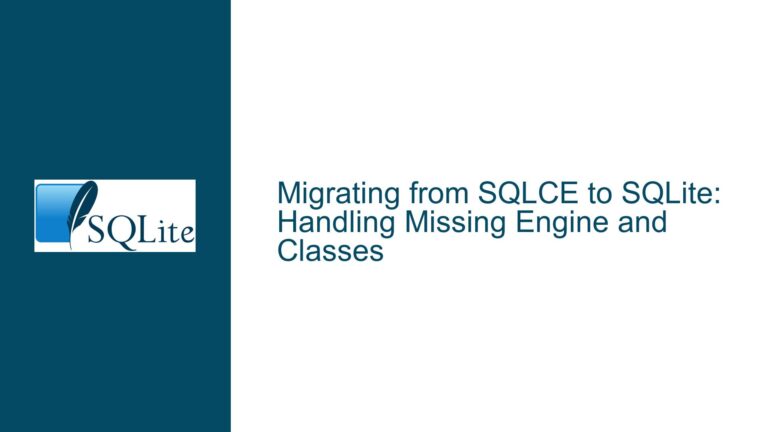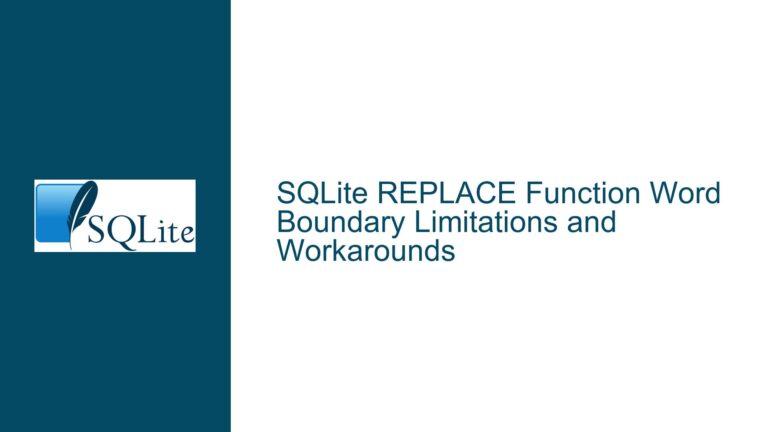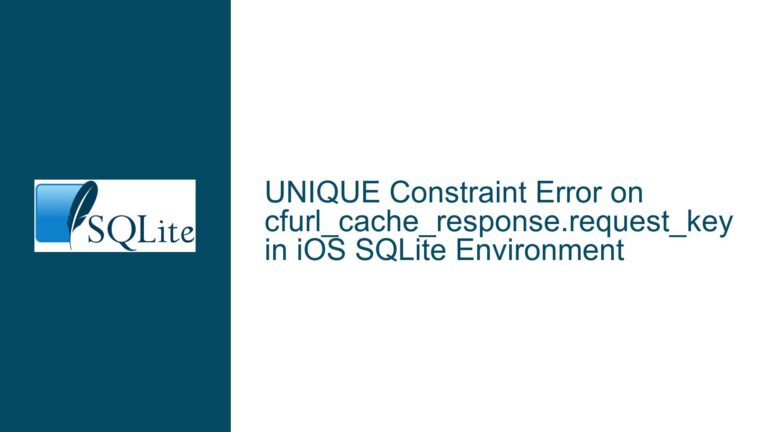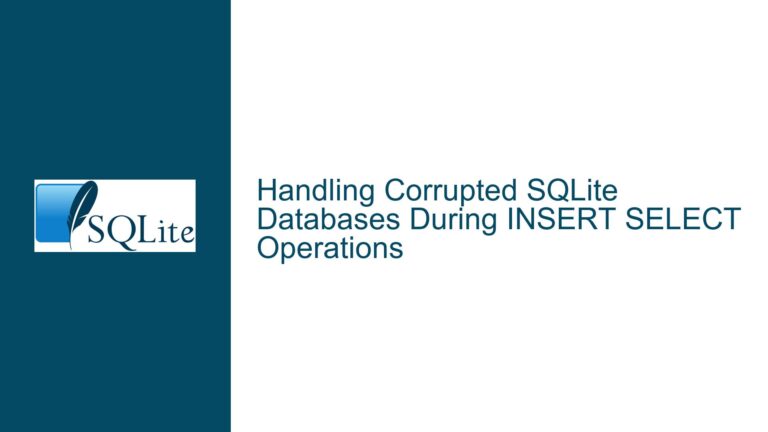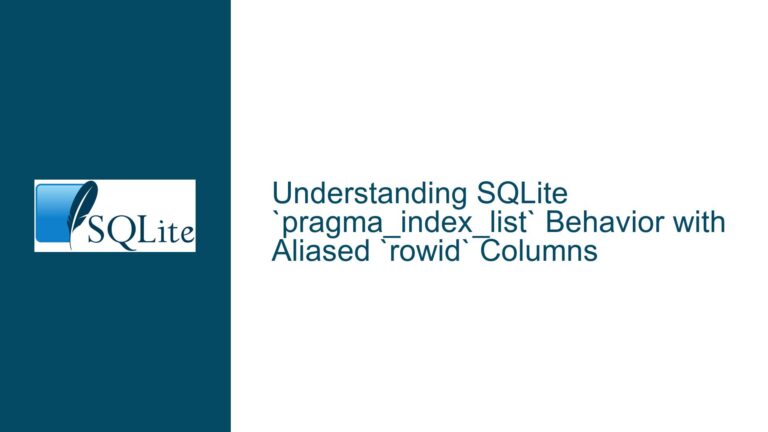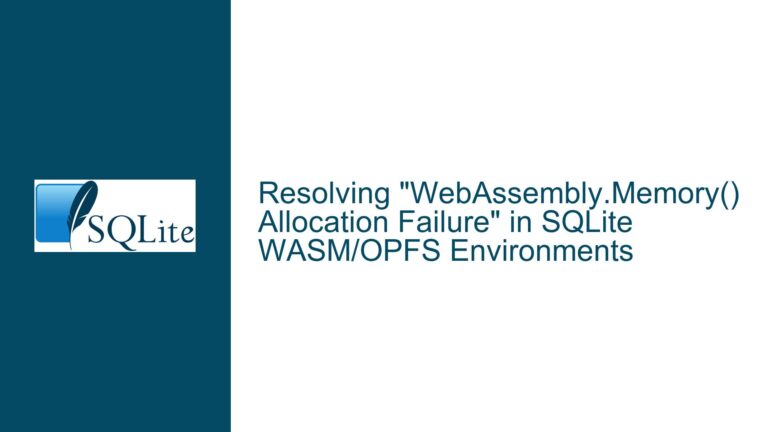Finding the Last Occurrence of a Character in SQLite Strings
Extracting Basenames from Path Strings in SQLite The core issue revolves around extracting the basename from a string that represents a file path, where the basename is defined as the segment following the last occurrence of the / character. This is a common task when dealing with file paths, and while many databases provide built-in…
